The cold drizzly hustings with the twice-toppled Menteri Besar
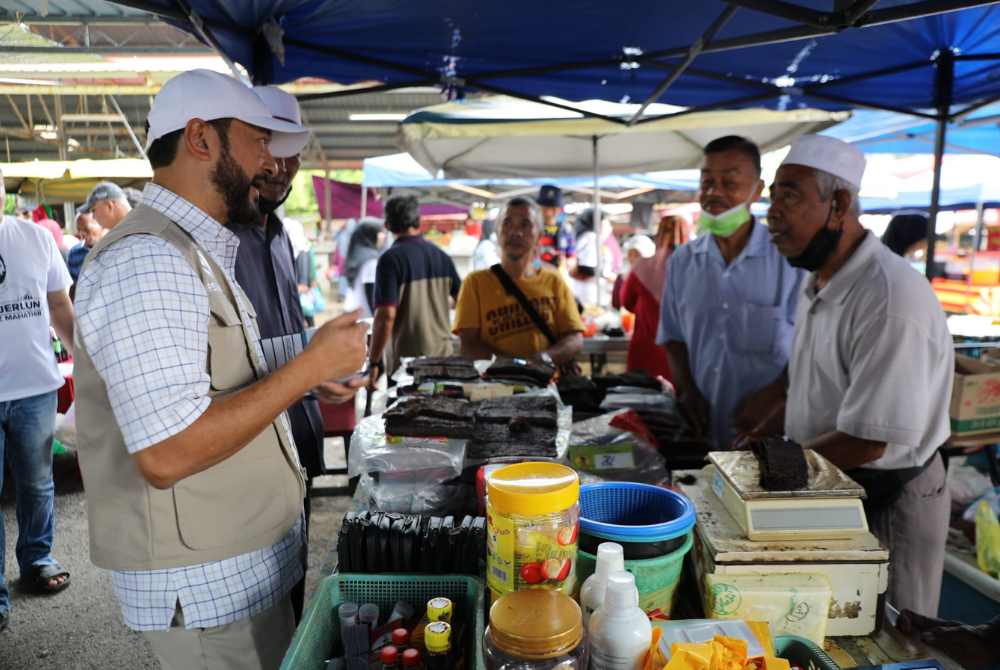
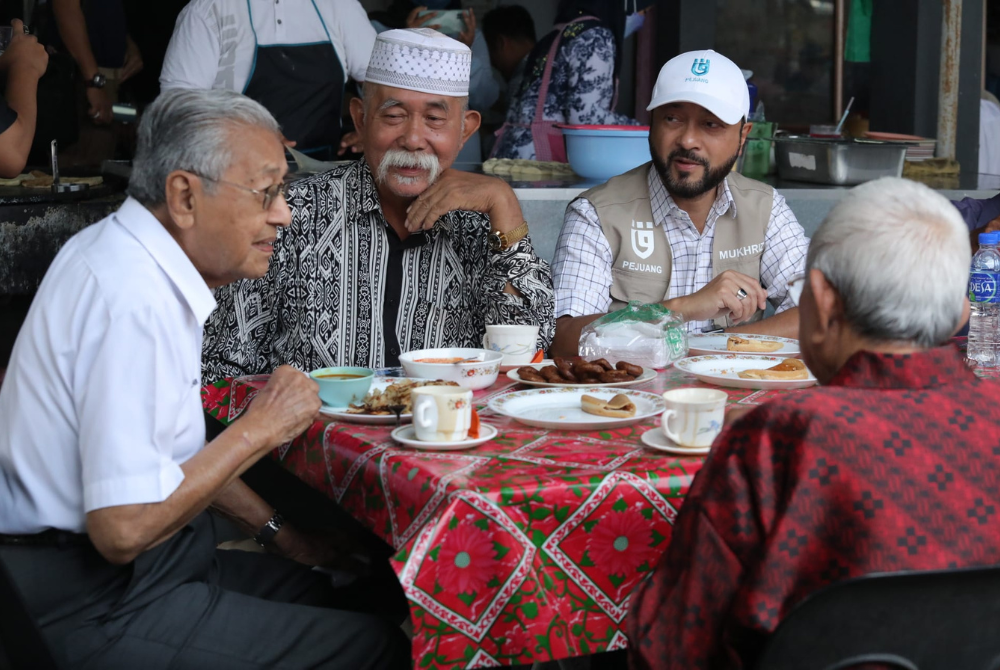
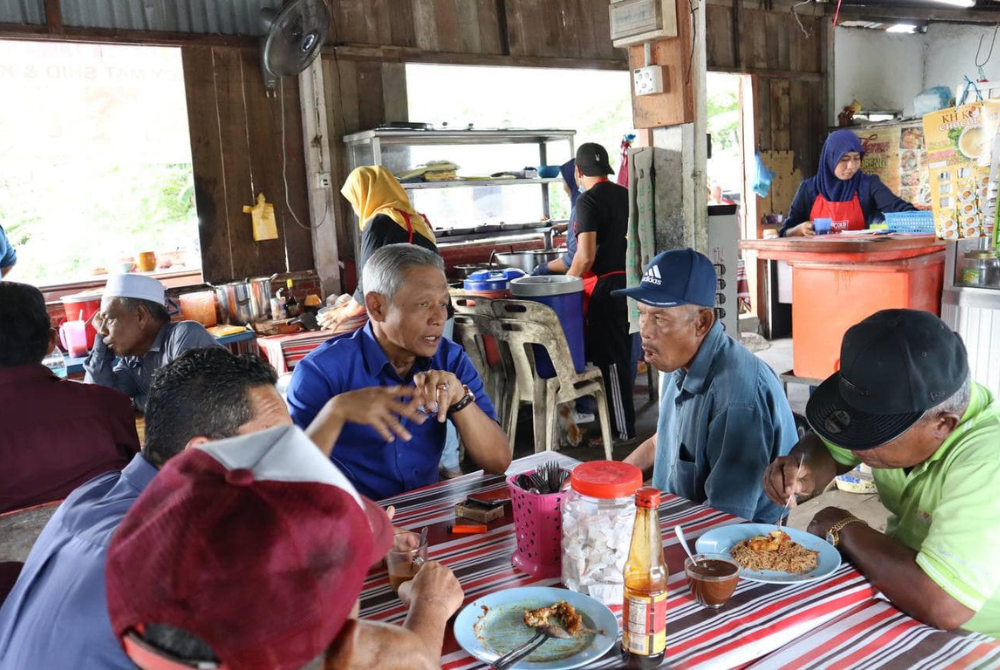
JERLUN — Signs that the coming national polls will undeniably be a rainy election were aplenty at a small hustings held at a quaint kampung near a muddy shore that overlooks the northern end of the Malacca Straits.
The sky was rumbling. Bellows of the crashing waves echoed through the cold night air made icier by the drizzle blown by the monsoon winds.
Had it not been for election season, the locals in the village of Kubang Nipah would have already tucked themselves into bed by now, after all, frigid climate often made sleep irresistible.
But not tonight.
Tonight, the locals were more than happy to stay up later than usual — for the record, those living in the rural Malay heartland would attest that 9PM was the typical siesta hour for many.
Why? They had an important guest to play host to — it was Datuk Seri Mukhriz Mahathir; their incumbent member of parliament.
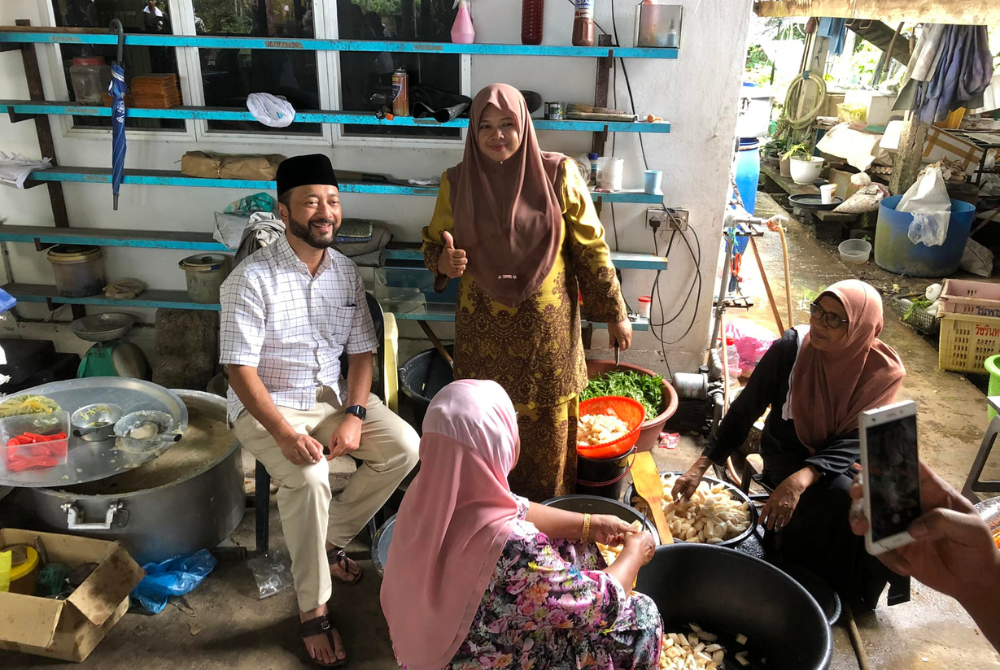
“He brought his wife too. Now that’s a sight you don’t see often,” claimed a local as Mukhriz and his spouse — Datin Seri Norzieta Zakaria — made their way into the small porch of the house where the meet-and-greet took place.
While he may be the incumbent MP of Jerlun, Mukhriz — whose legislative debut began in 2013 as Barisan Nasional’s (BN) Ayer Hitam assemblyman — is in a pickle this time around.
Having left Umno prior to the 2018 General Election, Mukhriz has now switched camp for the second time, contesting under banner of Gerakan Tanah Air (GTA); an all-Malay coalition made up of Pejuang and three other mosquito parties: Putra, Berjasa and Iman.
“Before this, he hurt his Umno supporters and now he has hurt his Pribumi Bersatu crowd too. He’s going to have it even tougher this time around,” said a BN party worker, Azlan Mahmud who was watching Mukhriz’s arrival from a distance.
However the pleasant welcome Mukhriz received seemed to suggest otherwise but with that being said, the northerners are known for being “hemoi” (affably warm and polite).
Like any typical kampung-style hustings, the one Mukhriz attended was devoid of formality; no grandiose speeches, just cordial conversations done over a hefty plate of curry noodles against the backdrop of the clanking of forks and spoons; with curious neighbours gradually congregate to get a glimpse of the man of the hour.
The mood was a tad serious as Mukhriz began his election sales pitch; he told the attendees of what GTA is fighting for and what it hopes to achieve which essentially boils down to aspirations of making the country great again.
“I don’t want to promise the moon and the stars but I do promise that we will help the downtrodden; especially the padi farmers in the state. I know for certain that it hasn’t been a kind year for them,” Mukhriz said.
The menfolk at the husting slowly nodded, agreeing with what Mukhriz had just said.
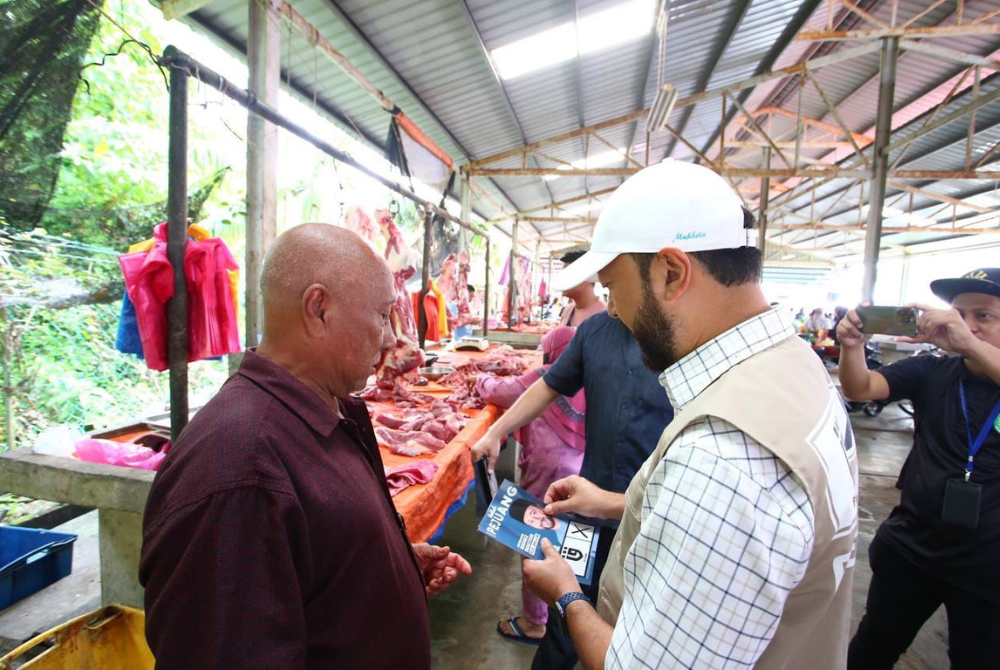
Having served as the Kedah Menteri Besar twice — the first being from May 2013 to February 2016 under BN while his second tenure was from May 2018 to May 2020 — Mukhriz, evidently, knows how to play to the gallery, here in Kedah.
He has centred his campaign on the welfare of padi farmers.
“Padi farming is a huge deal in Kedah. A third of the nation’s rice is produced here. It is our pride and joy to be able to feed the nation,” said 70 year-old padi farmer, Azmi Shapii.
In fact, there were cases of Kedah MBs who have had their tenure cut short because of inefficient handling of matters concerning padi farming.
This was especially so during the tenure of Tan Sri Osman Aroff (1985-1996) and the late Tan Sri Sanusi Junid (1996-1999).
The people’s beef with Osman started when his administration began acquiring padi fields from farmers in Kerpan in 1993 to be turned into shrimp farms.
The protest was so intense to the point that many had amassed in Kerpan and prayed for divine intervention which they believed happened when Osman was replaced by Sanusi three years later.
However, despite Sanusi’s appointment the Kerpan issue was not amicably settled and in 1997 — a year after Sanusi came to office — some farmers attacked three staff at the shrimp farm.
Sanusi’s relationship with some Kedahans continued to strain due to his penchant for dishing out outrageous ideas such as telling farmers to plant padi on rooftops and a let's-pluck-our-husbands’-grey-hair campaign.
It was also an open secret back then that Sanusi was unable to foster good relationships with those in the Kedah Civil Service (KCS) and the Muda Agricultural Development Authority (Mada).
Talk had it that the cold reception given to Sanusi was partly due to the latter’s supposed habit of voicing caustic remarks against those he deemed to be not as knowledgeable as him.
These issues were said to be the main cause why BN’s hold on power was eroded from 94.44 per cent in the 1995 elections to 66.7 per cent in 1999.
While Kedahans did not have much of an issue with Sanusi’s successor Datuk Seri Syed Razak Syed Zain Barakbah, aside from the latter’s academic qualifications, this was not the case with Datuk Seri Mahdzir Khalid who replaced him in December 2005.
One would have thought that having been MB for only two-and-a-half years Mahdzir would not have courted any controversy but he did and made worse by the fact that his tangle was with former prime minister Tun Dr. Mahathir Mohamad.
The controversy happened amidst the Mahathir-Pak Lah tiff (then PM Tun Abdullah Ahmad Badawi) when Mahdzir and Kubang Pasu member of parliament Datuk Johari Baharom sort of shooed Mahathir from going to the rostrum at an Umno meeting in Kubang Pasu.
“You don’t get to be rude to Che Det (what Kedahans call Mahathir) and get away with it,” echoed a group of bricklayers who were building a concrete hut in Alor Janggus. “For many of us that was it, we had to teach them a lesson.”
And indeed, they did.
For years, BN had it easy in Kedah as the opposition has never been much of a factor both at state and parliamentary levels, but the coalition’s long dominance ended in the 2008 General Election.
The blow dealt on BN was crushing to the point that if it had an 86.11 per cent share of the state seats in 2004, this was down to a mere 38.89 per cent in just four years.
But the PAS-led Pakatan Harapan government in Kedah quickly turned into a letdown for many Kedahans due to their inefficient governance, especially relating to the rampant logging in Changlun and Sintok.
Kedah PAS was also plagued with internal squabbling between their ulama and technocrats which eventually led to the birth of a now-defunct splinter pressure group, Pasma.
However, unlike in the 2018 General Election, there will be no simultaneous state elections in the coming November 19 national polls.
And therefore, none of Mukhriz’s detractors have yet to harp on his short-lived stints as Kedah MB in which he was toppled, twice, by his allies in the state legislative assembly.
In terms of parliamentary elections, the humblest pie that BN had to eat was in the 2018 General Election; when the coalition only won two of the 15 constituencies in Kedah.
But BN seemed to be gaining ground and momentum here, as there seems to be a palpable sense of voter remorse reverberating in the air.
“I have never voted for anything other than BN, but in 2018, I gave my ballot to PH and they did a terrible job governing the country. They really squandered the trust we gave them," lament Abdul Tahir Ismail, a noodle hawker at a morning market in Kodiang.
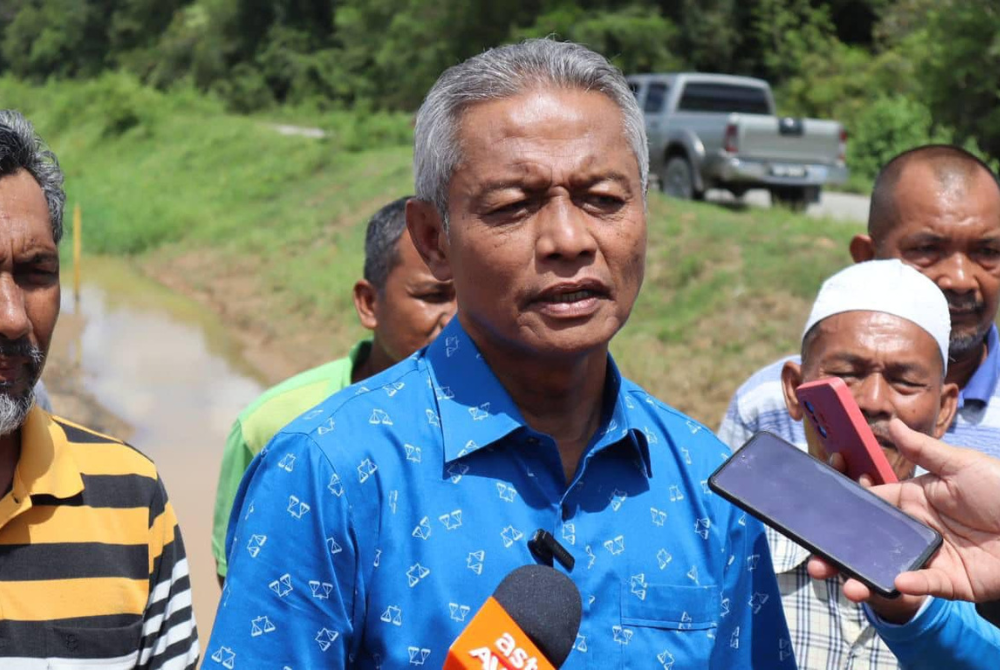
With only a few foot soldiers and limited resources — evident by lack of flags and other campaigning paraphernalia — canvassing will be an uphill battle for Mukhriz and the rest of Pejuang candidates who are vying for the 13 out of the 15 parliamentary seats in Kedah.
However, this may not necessarily translate to BN having an easy time; as the narrative alleging that a vote for BN will inevitably pave the way for Umno president Datuk Seri Ahmad Zahid Hamidi to be Prime Minister is making waves here.
But in Jerlun, BN candidate Datuk Othman Abdul Aziz knows how to strike a chord with the constituents there; similar to Mukhriz, he too, centres his campaign on the plight of those toiling the lands.
However unlike Mukhriz, Othman is a local boy; he grew up in Ayer Hitam -- a state seat in the Jerlun parliamentary -- and speaks the padi farming lingo with much fluency owing to his previous stint as Mada chairman.
At a husting on November 10, Othman nailed down the domino effect of the state’s poorly maintained irrigation infrastructures which not only delayed padi planting but had also impaired harvesting.
“The high tide from the monsoon slows down the current of the rivers which wells-up the padi fields thus preventing padi farming. The vegetation growing in the irrigation canals and channels aggravates the sluggish current.
“The longer the fields are inundated, the softer the earth will be and if soaked long enough, it will liquefy and can no longer support weights which will make it difficult to plough and toil the land,” he explained to curious newsmen seeking to understand the woes of padi farmers.
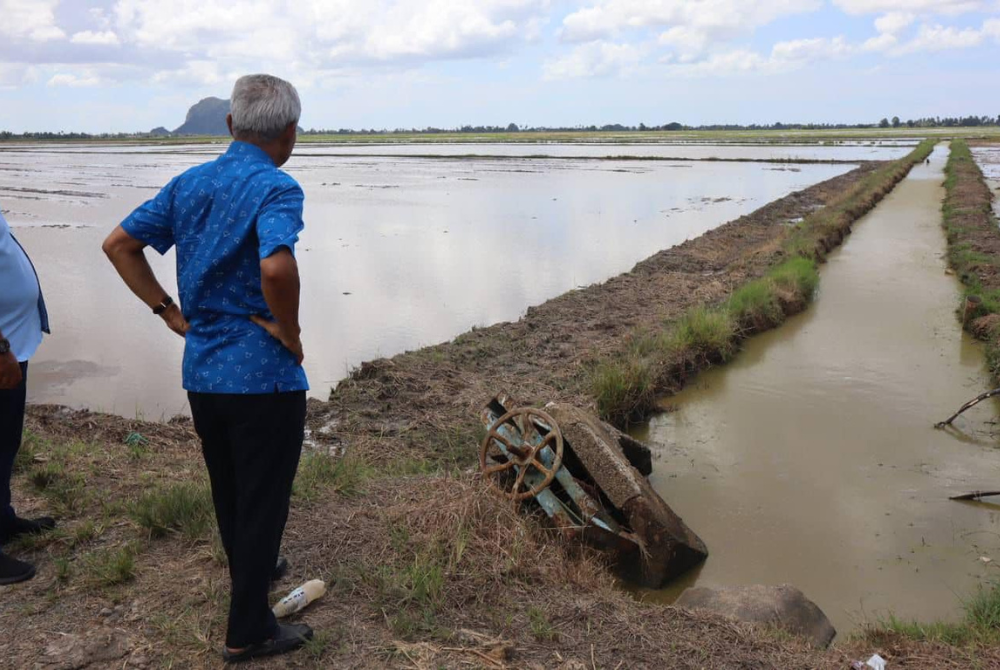
Had it not been for his father’s influence -- Tun Dr Mahathir Mohamad -- it was highly unlikely for Mukhriz to stand a chance in Kedah because while he spoke like any true blue Kedahan, Mukhriz still carried that KL city boy vibes with him.
And at the cold drizzly husting at the small village of Kubang Nipah, a glimpse of such background differences were seen when Mukhriz and Norzieta were bantering over the name of a common traditional Malay kueh served to them.
“It is called ‘kasui’, Datuk Seri,” a villager enlightened the couple. “People generally eat it with freshly grated coconut flesh.”










